Pricing, Products, Potential Layoffs And Partners: What’s Next For Broadcom-VMware
Along the deal’s 17-month odyssey one refrain that has emerged is that only Broadcom CEO Hock Tan knows for sure what VMware is going to look like after the deal closes. While Tan has refused to talk with CRN, his blogs provide some insight.
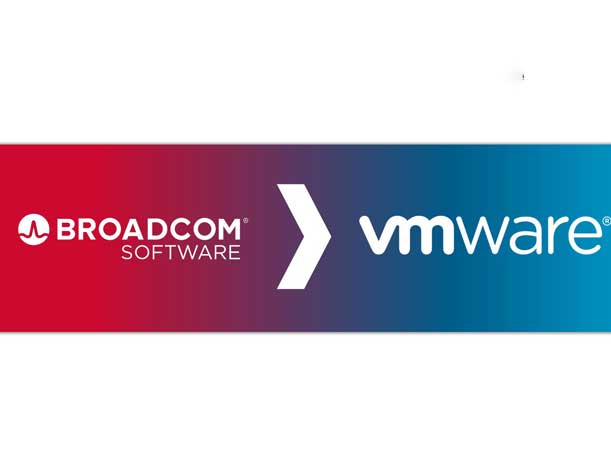
By the time Halloween decorations are placed into retailers’ discount bins, Broadcom should own VMware.
Since the May 2022 announcement of the deal, CRN has covered each development in the $61 billion transaction, talking to partners, analysts, customers, rivals, regulators, the CEO of VMware (twice) and VMware’s largest shareholder, Michael Dell, about it will mean for VMware partners.
Along the deal’s 17-month odyssey, one refrain that has emerged is that only Broadcom President and CEO Hock Tan knows for sure what VMware is going to look like after the deal closes. More than once, Tan said he plans to “embrace the channel.”
Soon, partners said, they will be looking for that hug, and it is not clear if Tan is signaling them to bring it in.
“It’s yet to be seen,” said Bob Venero, president of VMware partner and Dell Federal Titanium partner Future Tech, based in Fort Lauderdale, Fla. “There’s no real direction or answer outside of, ‘Hey this is what we’re going to do.’ We don’t see it in the contracts. We don’t see that in written emails or from a channel engagement perspective.”
Regulators around the world have approved the deal, with the U.S. Federal Trade Commission opting to let its period to make objections expire without challenge. The European Commission won concessions from Broadcom to ensure its good behavior, ordering a fast-track dispute resolution process that gives rival chip manufacturer Marvell Technology a place to complain if Broadcom refuses to share VMware’s technology.
One speed bump has been China, however. Tracy Woo, principal analyst at Forrester, said she doesn’t expect the country to hold out for long.
“China has been slowing the process down, but ultimately I don’t believe they will block the deal,” Woo told CRN via email. “This is a flex from China marking their presence on this major deal.”
For months CRN has requested to speak with Tan to get a better understanding of his plans for Broadcom and VMware’s channel. Tan so far has not granted CRN an interview.
He has tried to put to rest any fear, uncertainty or doubt through regular blogging. However, as the deal moves closer to its Oct. 30 close, VMware partners say concerns remain around pricing, products and channel strategy.
“I think it’s still an unknown whether or not they’re going to let VMware be VMware, which is probably the smartest thing that they can do,” Venero said.
Thundering into that information vacuum last week was Rajiv Ramaswami, the softspoken CEO of Nutanix.
Ramaswami spent four years at VMware, rising to COO for product and cloud services before departing in December 2020. And, as fate would have it, he also spent six years as executive vice president of networking at Broadcom.
In an on-stage interview with CRN editors at last week’s XChange Best of Breed Conference in a room with some of VMware’s largest partners, Ramaswami explored the old wounds Broadcom left in the channel from past behavior following the acquisitions of CA Technologies and Symantec.
“Customers are not necessarily very happy. They typically will see pricing going up, road maps potentially getting shrunk, some products being divested and support levels potentially coming down,” he said in the on-stage interview. “VMware, of course, is being used for mission-critical workloads by many customers. These are areas of concern [for customers].”
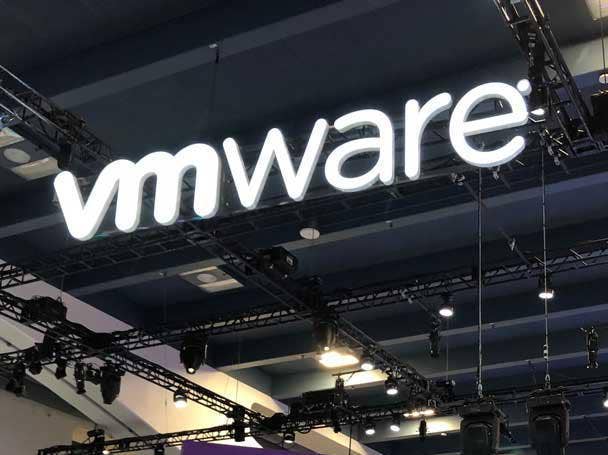
Pricing
Analysts and partners expect that the cost of VMware products is going to go up.
This is despite Tan stating twice in blogs in October and November 2022 that it will not.
“I’ve continued to see questions in press reports about whether we intend to raise prices on VMware products,” he said in a Nov. 30 blog titled “Broadcom and VMware—investing for customer value.”
“The answer is simple: No.”
Forrester’s Woo, who leads research on cloud management and high-performance compute, doesn’t buy it.
“I wouldn’t trust Broadcom’s promise on pricing not increasing. That has been a tried-and-true strategy for them. I’ve heard of pricing increases coming from VMware customers already,” Woo said. “I believe this is in anticipation of and potentially with influence from Broadcom leadership.”
Future Tech’s Venero doesn’t buy Tan’s promise either. He encourages his VMware customers to hold on to their current pricing by negotiating new deals now.
“You’re going to see increases. And we’ve been telling our customers this for the last however long this has been going on, which is quite a while, and based on that, we’ve been able to write quite a few ELAs [enterprise license agreements] and get them in place with a three-year price lock,” he said.
This is exactly the strategy that VMware CEO Raghu Raghuram told attendees at last year’s XChange Best of Breed conference to adopt in 2022. He said if customers are uncertain about pricing, “introduce certainty” by having them sign deals now.
This year at the conference, it was Ramaswami’s turn to introduce his certainty around VMware prices. Ramaswami said he has already seen what happens next.
“Customers are not necessarily very happy. They typically will see pricing going up, road maps potentially getting shrunk, some products being divested and support levels potentially coming down,” he said at the 2023 XChange Best of Breed conference. “VMware, of course, is being used for mission-critical workloads by many customers. These are areas of concern [for customers].”
Right now, VMware users are hunting for alternatives, said Woo.
“Customers are ultimately concerned about pricing increases and decreased customer support,” she said. “We have been talking to a lot of VMware clients that are looking at VMware alternatives. And we have been talking to prospective VMware clients that have gone with other alternatives in light of Broadcom.”
In a blog, Tan pushed back on the idea that price hikes were part of Broadcom’s DNA.
“Our growth into a global technology leader was not based on taking existing products and raising their prices, but by creating technology and products that provide clear value to customers and continuing to improve them,” he wrote in an October 2022 blog titled “What a combined Broadcom and VMware can deliver to our customers.”
“By delivering long-term value to customers and investing in improved, customer-focused R&D, we can innovate, scale and offer better products without raising prices.”
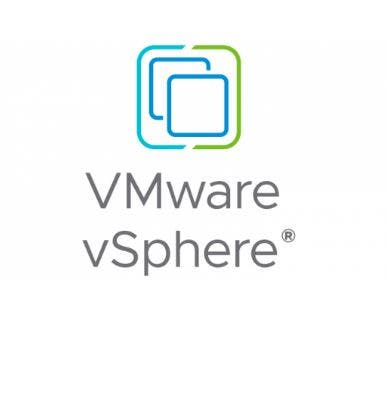
Products
Solution providers like VirtuIT Systems, based in Nanuet, N.Y., are deploying some of VMware’s most advanced products on behalf of its most technologically sophisticated customers. At the moment, that means prepping enterprise architectures for the installation of vSphere 8.0. VirtuIT carries a VMware Master Services Competency in data center and has skills across the entire VMware stack.
CEO Gary McConnell said, so far, the VMware team he speaks with seems untroubled by the deal with Broadcom, which gives his business a reason to be positive.
“From our perspective it has been business as usual while our engineers start getting ready for our vSphere 8.0 upgrade,” he said.
Two products, vShpere and vSAN, were singled out as core revenue drivers by VMware when the deal was unveiled. Tan has talked glowingly about the latest versions of VMware’s enterprise-grade storage and compute virtualization technology, and its future.
“vSphere 8 and vSAN 8, when they come to market, will help customers dramatically improve how they run, manage and secure their different enterprise applications,” Tan wrote in a blog in August 2022 after attending his first VMware Explore.
He similarly waxed positively about VMware Cloud Foundation+, which he said will provide customers with consistent infrastructure and operations across private and public clouds at scale, on its way to being the foundation of VMware’s Edge portfolio.
Tan has said Broadcom plans to incrementally invest $2 billion into driving better VMware products and better sales, “with half focused on R&D and the other half focused on helping to accelerate the deployment of VMware solutions through VMware and partner professional services.”
Venero sees some product consolidation as inevitable, but it likely will not fall on products that could hurt partners.
“There may be a pruning, but I think if I’m Broadcom, I think they’re smart not to make any decisions as it relates to that until everything stabilizes and they see how their customers start to engage and work with them,” he said. “It’d be very short-sighted to just start to cut stuff short without really understanding the full impact for the customer set.”
Tan worked to put to rest early consternation over Tanzu in the same October blog in which he wrote about pricing. VMware Tanzu is used by application developers to operate and optimize apps on any cloud. Partners are writing big Tanzu agreements with customers, according to slides VMware shared at this year’s Explore, its flagship conference.
“I see Tanzu as a strategic part of the VMware software portfolio, and it will remain that way as we move forward within Broadcom,” Tan wrote. “VMware Tanzu customers are running some of the most mission-critical applications in the world. As customers think about future investments in cloud-native applications and the modern application development space, they should feel confident in Broadcom’s commitment going forward.”
The average Tanzu sale that partners “land” is worth $150,000, with $12,500 in monthly recurring revenue and up to $300,000 in services. The typical “expand” deals register at $225,000 with $18,800 per month in recurring revenue, and up to $1 million in services. Deals out of that group which reach the “grow” phase average $338,000, with $28,000 in monthly recurring revenue and up to $1.5 million in services.
“I have gained a deeper understanding of the VMware Tanzu portfolio and the strategic importance of cloud-native applications and modern app development and management,” Tan wrote in October 2022. “Customers are telling me that modern applications are a central part of their go-forward strategy in a multi-cloud world, and that the VMware Tanzu portfolio of products and solutions are an important area of focus for them.”
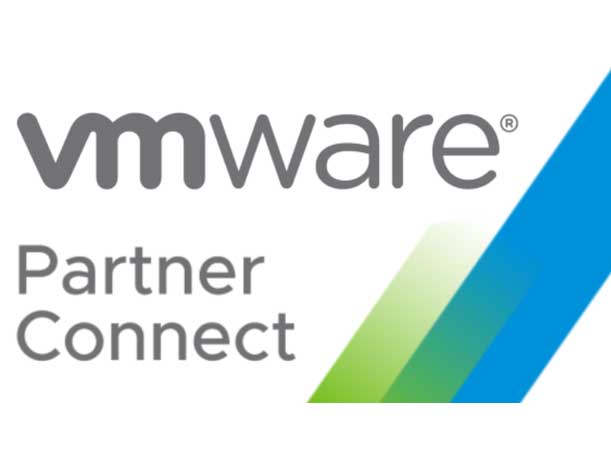
Partners
Once Broadcom unveiled its $61 billion stock and cash buyout plan for the virtualization leader, the wish that was most often repeated by VMware partners was captured in one anonymous quote to CRN: “Don’t screw VMware up.”
From their first public statements on the deal, Tan, and Tom Krause, who was then president of Broadcom Software Group, addressed the elephant in the room: Broadcom hadn’t always played nice in the channel.
Nutanix’s Ramaswami reminded the Best of Breed audience of that last week.
“They’ve bought Brocade. Then they bought CA [Technologies] and Symantec, and the playbook has been very consistent. The playbook for VMware is going to be very consistent as well: Focus on the top customers,” Ramaswami said. “All the 2,000 customers at the top, Broadcom can take direct. And they have, in the past, taken them direct. So channel partners may not have a role in those companies.”
Speaking on a call with Wall Street analysts on May 26, 2022, Krause reassured the public that it would not do that again.
“We think from learning about how we, CA and Symantec, and frankly some of the revenues that we gave up, we think we can actually go back and reinvest in the channel and continue to drive revenue growth profitably. We don’t want to walk away from the channel. We actually want to embrace it,” Krause said on the call.
He also acknowledged that Broadcom needs to invest in sales and marketing to support the company’s 300,000 customers.
A few weeks later, on July 15, 2022, Krause quit Broadcom, leaving his position as president of the unit that was expected to be renamed “VMware.” Krause had won a job as CEO at VMware rival Citrix Systems.
Tan has been leading the conversation around partners ever since and has repeated Krause’s earliest stated intention to “embrace the channel.”
“VMware has the necessary scale and a wide product portfolio that will allow us to engage with and really embrace the channel,” Tan said in a print advertisement that ran in CRN.
Then Tan hammered home the message, saying Broadcom would take a “no customer left behind” approach.
“VMware has a robust partner ecosystem that we will build upon to help us serve even the smallest companies. In short, we plan to take a ‘no customer left behind’ approach,” he said.
VirtuIT’s McConnell, whose engineers regularly talk over technical issues with VMware, said he has not felt any letup from them ahead of the acquisition.
“We have maintained close communication with our dedicated account teams, and there seems to continue to be a channel focus,” he said.
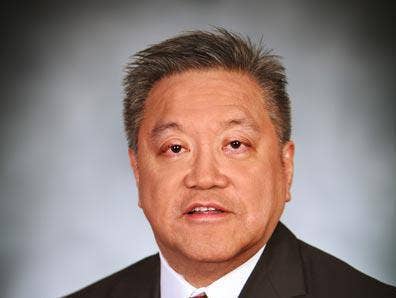
Post-Close
When Tan (pictured) writes about Broadcom’s future with VMware, he paints with large bold brush strokes. Flexibility, infrastructure, ease of use, multi-cloud, distributed environments and ecosystem are the words Broadcom has combined in a sort of mixed-greens salad of concepts it tosses fresh anytime that it talks about what lies ahead.
“Bringing VMware’s multi-cloud offerings and Broadcom’s software portfolio together after the deal closes will enable customers greater choice and flexibility to build, run, manage, connect and protect traditional and modern applications at scale across diversified, distributed environments,” he wrote in a June 2022 blog titled “Broadcom and VMware: Planning for the next generation of infrastructure software.”
“We will bring our customers greater flexibility and deliver new solutions to help them connect, scale and protect their IT infrastructure,” he said again in November.
“Together, we will add the software tools customers need to better manage and get the most out of their data across all possible environments, whether they choose private cloud or public cloud approaches,” he said in February. “Our customers and partners will have access to a stable, growing and powerful multi-cloud platform underpinned by world-class security, enabling them to accelerate innovation for all their applications.”
As the European Commission was prepared to announce a Phase 2 investigation of the deal that would consider whether a combined Broadcom and VMware would act on any of the theories of harm that had been presented to regulators by its chip-making rivals such as Marvell Technology, Tan then began to publicly outline the priorities around ease of access to VMware products.
“Following the transaction close, we’re going to focus on how to make VMware’s products even better for customers of all sizes, including how to make them easier for customers to access and use,” Tan wrote in a letter to the VMware User Group [VMUG], filed publicly with the U.S. Securities and Exchange Commission. “As part of this, we will support and invest greater resources in VMware’s training and certification programs, which we recognize are incredibly valuable offerings to the user community.”
In the letter, Tan also promised to “maintain and nurture” existing customer relationships. He closed with a pledge to the VMUG highlighted in bold letters: “Broadcom recognizes the importance of your access and partnership to VMware and is committed to supporting the valuable resource VMUG has built – inclusive of your knowledge sharing, training, collaboration and events.”
The most detailed look yet at what is about to happen inside VMware came through an email written to senior management and leaked to Business Insider. VMware refused to provide CRN with a copy of the email when asked to do so.
The email said once the deal closes, the company’s 38,000 workers would be funneled into one of three chutes: immediate severance, temporary work with an arranged exit and severance, or an offer for full-time employment.
No matter the option, Broadcom aims to improve profitability by wide margins in the first three years, improving from $4.3 billion to $8.5 billion, which indicates that the cuts may be significant.
Ramaswami leaned into that when painting his more detailed picture of what VMware and Broadcom might look like together.
“They’re going to focus on optimizing costs quite a bit,” Ramaswami said in the interview at XChange Best of Breed. “They said they will double the EBITDA [earnings before interest, taxes, depreciation and amortization] within a matter of three years or so. So what does that mean for all of us in the room here? There’s some good news and bad news here. Broadcom has done a phenomenal job of executing on their model. They’ve shown that. They’ve grown time and time again. … Now when that happens, customers are not necessarily very happy.”
Venero sees the cuts as an inevitability of any transaction of this size, but one with a silver lining for partners.
“They’re going to need to make some adjustments around the number of people that are there,” he said. “Selfishly, from a channel perspective, they’re going to need to rely more on the channel, to help them drive their environment if they’re going to make large reductions. And if they’re going to do that, then they should better incentivize the partners to lead with VMware.”